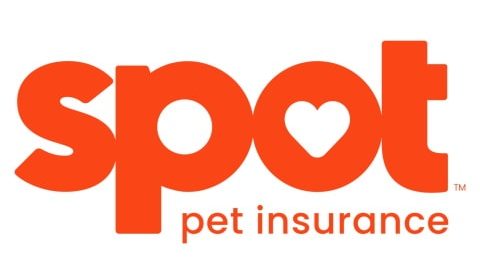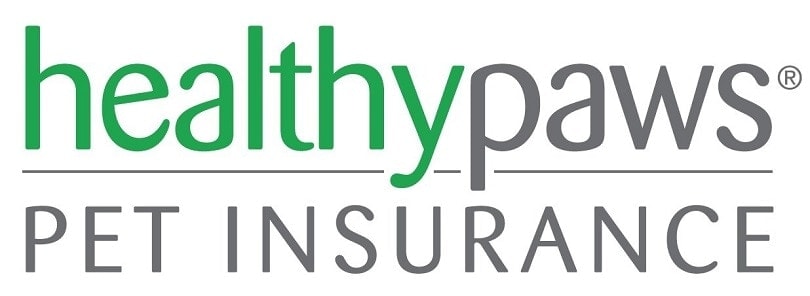6 Best Pet Insurance Providers in Oregon – 2024 Reviews
By Shana Loven
Updated on

Pet owners living in Oregon can explore the streets of the city in the morning, and then explore the state’s rugged coastline, all in the same day. But many pet owners know that taking their pet along could end up in a vet visit, if they have an accident or get sick. Pet insurance can help give pet lovers peace of mind about taking their furry friends on the road, by knowing that their pets can get the care they need right away, without worrying about the cost.
There are so many options for pet insurance available on the market that it can be a bit daunting to choose the right one for you. We’ve looked at some of the top pet insurance companies, and put together a list of reviews to help you pick the right pet insurance in Oregon for your favorite furry friends.
A Quick Glance at Our Favorites of 2024
| Rating | Image | Product | Details | |
|---|---|---|---|---|

|
Trupanion |
|
Click to Get Quote | |

|
Lemonade |
|
Click to Get Quote | |

|
Spot |
|
Click to Get Quote | |

|
Embrace |
|
Click to Get Quote | |

|
ASPCA |
|
Click to Get Quote |
The 6 Best Pet Insurance Providers in Oregon
1. Trupanion Pet Insurance – Best Overall
Trupanion earns our top spot because they have generous coverage and pay directly to vets, so you don’t have to wait to be reimbursed. Their policies cover 90% of the cost of an emergent veterinary visit when your pet gets sick or has an accident. Many companies have an annual payout limit, but Trupanion has no limits based on per-incident amounts, or annual or lifetime coverage—meaning you never have to worry that you won’t have coverage if something happens to your pet.
Trupanion also covers pets over the age of 10 years old, which is something many pet insurance companies don’t cover. Trupanion offers an add-on that covers 90% of alternative treatments, such as behavior modification, chiropractic treatment, acupuncture, and hydrotherapy. If you’ve gotten your pet from a shelter or breeder, some of them provide 30 days of free Trupanion coverage (including coverage for pre-existing conditions), but there is a $250 deductible.
There are no multi-pet discounts available for Trupanion. They only offer one plan, which covers accidents and illnesses, and may have a high premium, but there are no limits on payouts. Trupanion doesn’t cover preventive care, such as exams, spay/neuter, parasite control, or vaccinations. They also don’t cover pre-existing conditions—which they define as any condition, illness, or injury that showed signs of manifesting within the 18 months before coverage.
- Covers 90% emergent veterinary treatment
- No payout limits
- Covers pets over 10 years old
- Select shelters & breeders offer 30 days of Trupanion
- Add-on available for alternative treatments
- No multi-pet discounts
- High premium
- No preventive care coverage
- No pre-existing care coverage
2. Lemonade – Best Value
Lemonade offers a variety of insurance plans for pet owners looking for quality insurance. They have a base policy that covers diagnostics and treatments ordered by your veterinarian if your pet has an accident or develops an illness. Lemonade offers various Preventive Care Packages if you’re interested in additional riders on your policy to cover non-emergency care, such as routine vet appointments. There are additional add-ons available, such as coverage for dental illnesses, behavioral conditions, physical therapy, vet visits, and end-of-life needs.
One of the best things about this insurance is that you can take your pet to any veterinarian, as long as they are licensed to operate in your state. When you sign up, you’ll need to provide a medical record that includes any visits to your vet within the last year.
Lemonade also offers a 5% multiple pet discount, and has a 10% discount available if you bundle your pet insurance with their renters, homeowner, or life insurance policies. There’s a 5% discount if you pay your premium annually, and unclaimed money left from your policy payment can go to a charity of your choice through their program, Lemonade Giveback.
There are some cons to the Lemonade, such as needing to request a quote before you can see any information on any potential policies. They also won’t provide quotes or issue policies on some breeds that are aged seven or older, which is a lower age limit than other policies. They also won’t cover dental illnesses or treatments for pets under two years of age. If you wish to change your deductible, you can only do that within 14 days of your initial signup, or at your annual renewal. Additionally, Lemonade only provides insurance coverage for cats and dogs at this time.
- Quick claims processing
- Offers additional plan add-ons
- Multiple plan discounts available
- Charity donations made with unclaimed money
- Need to submit information for a quote
- Won’t issue policies on some breeds older than age 7
- Won’t cover dental illnesses in pets younger than age 2
3. Spot
Spot offers pet owners customizable deductibles, a variety of reimbursable percentages, and unlimited annual benefits. Spot has many reimbursement options, from 70%, 80%, or 90%, and deductibles ranging from $100 to $1,000. Many plans have a cap on their annual benefit payouts, usually a few thousand dollars at most, which might not cover a drastic health event. Spot is different, with an annual payout from $2,500 to an unlimited payout—but the higher benefit will mean a larger premium for you to pay.
Unlike many of the other plans on the market, they also cover chronic conditions, as well as hereditary and congenital conditions. Spot doesn’t have an upper age limit on their pets, so you can get accident and illness coverage for pets of any age. They have a shorter waiting period than many other companies, only 14 days for accident and illness coverage to kick in. They also have a 24/7 veterinarian telehealth line for you to call to figure out if your pet needs emergent care.
Spot’s premiums tend to be higher than other companies in the industry because of their extensive coverage options. They also have a bilateral exclusion clause, meaning that if your pet has an issue with their knees, or develops a ligament condition in one joint, any similar issues in other joints won’t be covered in the future. Spot also charges a transaction fee for premiums paid monthly, quarterly, or semi-annually, with the fee waived if you pay the premium annually.
- Low deductible options
- No age limits
- Unlimited annual coverage option
- 24/7 telehealth line
- Higher premiums
- Bilateral exclusion clause
- Transaction fees
4. Embrace
Embrace is one of only a few pet insurances that covers pets over the age of 10 years old, and will issue new insurance policies until pets turn 15. Pets above age 15 qualify for accident-only coverage, which is rare in the pet insurance world. Embrace also offers a diminishing deductible, which means that they reduce your deductible by $50 for every year there isn’t an illness or accident claim—which can reduce your out-of-pocket costs over time, if you do have to make a claim.
They require a 12-month medical history review before insuring, to determine if your pet has any pre-existing medical conditions, which they do not cover. They do cover the cost of pre-existing curable conditions, such as vomiting, meaning that if your pet had the condition and was symptom and treatment-free for a year, vomiting will be covered in the future.
Embrace only covers cats and dogs on their plans. Another con is they don’t offer wellness add-ons to their policies, like some other insurances do. They do offer a Wellness Rewards plan with a $25 annual reward to cover items like spay/neuter, wellness exam fees, prescriptions food, and more.
- Covers pets over age 10
- Accident coverage for 15-year-olds
- Diminishing deductible
- Only covers cats and dogs
- No wellness add-ons
5. ASPCA
The American Society for the Prevention of Cruelty to Animals (ASPCA) offers several options for insurance plans: accident and illness, accident-only, and preventative care for dogs and cats.
There is no maximum age limit for ASPCA, and it covers hereditary and congenital conditions, as long as the pet isn’t diagnosed prior to enrollment, or during the 14 days wait period. They also cover alternative treatments, behavioral issues, chronic conditions, prescription medications, prescription food, supplements, and microchip implantation. They offer a preventative care option to cover annual exams, flea and tick medication, heartworm prevention and screenings, as well as vaccines.
The ASPCA pet insurance does have some downsides, such as their claim processing taking roughly 30 days per claim. There is also a transaction fee if you pay your premium monthly, but there are no transaction fees if you pay annually.
- No age limits
- Coverage for hereditary and congenital illnesses
- Covers microchipping
- Preventative care add-on
- Slow claim processing
- Transaction fee for monthly payments
6. Healthy Paws
Healthy Paws offers an accident and illness policy that covers cats and dogs for a variety of issues, including, cancer, genetic conditions, injuries, emergency care, and alternative treatments. The alternative treatment options coverage is one of the reasons they made this list, because they cover chiropractic, physical therapy, hydrotherapy, acupuncture, massage, and laser therapy for your pet, if the treatment is done by a licensed vet.
They have a mobile app to quickly process claims within 2 days, and there are no per-incident, annual, or lifetime caps—so you won’t need to worry that the company won’t pay out after a certain amount. Healthy Paws also offers a direct payment option to any agreeing veterinarian at the time of service if you can’t pay the bill yourself. Another bonus is that every time an insurance quote is submitted to their website, the Healthy Paws Foundation donates to organizations to help homeless pets get medical care.
Healthy Paws only offers one plan to its customers, the accident and wellness plan. So, you can’t choose between plans depending on your budget. They only offer limited coverage for hip dysplasia in dogs, which is common among breeds like Labrador Retrievers. Pets younger than 6 years of age need to get a vet exam before they can be covered for hip dysplasia, and pets over age 6 are not covered for the condition at all.
Healthy Paws only offers a 60% reimbursement rate for pets age 8 and older, and they don’t cover pets over age 14. To get set up with Healthy Paws, you’ll have to pay a $25 administration fee, which is something that most companies don’t charge.
- Cover alternative treatments
- No caps
- Claims usually processed within 2 days
- Direct pay option available
- Donations to help homeless pets
- Only one plan available
- Limited coverage for hip dysplasia
- Only 60% reimbursement for pets age 8 and older
- No coverage for pets over age 14
- $25 administration fee
 Buyer’s Guide: Choosing the Right Pet Insurance in Oregon
Buyer’s Guide: Choosing the Right Pet Insurance in Oregon
What to Look for in Pet Insurance (for Cats, Older Dogs, Etc.)
Pet insurance for smaller animals is a relatively new concept to the insurance market, but it’s fast becoming a popular way for pet owners to prepare for emergencies. Some policies even offer add-ons for basic wellness checks, or wellness accounts to cover some of the other pet care issues that can arise. There are many options out on the market, so we’re going to offer up some things to consider before you purchase a policy.
Policy Coverage
To determine the right policy for your pet, you’ll need to think about what kind of coverage you might need if your pet develops a serious illness, or gets into an accident. The insurance companies on our list offer a variety of policies; from accident-only policies, to accident and illness policies, as well as comprehensive policies.
Accident-only policies tend to be more affordable because they’re very specific as to what they cover—accidents. Accident and illness policies tend to cover more of your pet’s potential needs that could arise during the year, by covering both accidents and illnesses. Depending on the insurance provider, wellness coverage can also be added to these policies, thus, making them more comprehensive. Finally, there are comprehensive policies that cover everything from well visits, to accidents and illnesses, and may even cover dental care, vaccinations, and more.

Customer Service & Reputation
Another important thing to consider when deciding on a pet insurance company is its customer service and reputation. When your pet has been involved in a serious accident, and you need to submit a claim, the last thing you want to do is hassle with a rude insurance representative over the bill.
Before purchasing a policy with a company, take a few minutes on the internet to research the companies to find reviews from actual customers regarding the company’s customer service. Many users will post about their experiences with an insurance company—both good and bad. Pulling reviews from a couple of different websites should give you a well-rounded view of the company, so you can choose the right company for your needs.
Claim Repayment
Speaking of reviews, you’ll also find that many of those reviews will talk about how quickly claims were paid out, which is also an important thing to consider when choosing an insurance company. If an insurance company doesn’t have the best reputation for prompt responses to claims, there are plenty of other options to choose from on the market. Doing a little research about claim payout at a company before making a purchase can give you the peace of mind to know you’ll have no issues with insurance when tragedy strikes.

Price of Policy
To pick the right insurance policy for your pet, you’ll need to think about the overall wellness of your pet, as well as the likelihood that you could afford to get them proper treatment if an illness or accident happened. Prices will vary by insurer, so you’ll need to price compare between a few companies to get the best rates.
Another thing to consider when purchasing a policy is the deductible, which is the amount you need to pay out before anything is covered by your insurance. The higher the deductible, the lower your premium will be per month. The lower the deductible, the higher your upfront monthly cost.
Additional add-ons, such as preventative care, will also drive up the cost of your premium. As your pets age, your premium is going to go up in anticipation of your pet having more health issues. Many policies don’t cover pre-existing conditions, so you’ll still need to pay out-of-pocket for those costs, and they won’t go toward your deductible. You’ll also want to be aware of whether the company has a payout cap, whether it’s for annual, per-incident, or lifetime.

Plan Customization
The good news about pet insurance is that many companies have customizations available to help you get the most out of their policies. Many plans offer accident and illness coverage only, but more companies are offering add-ons, so you can have a plan that meets your pet’s needs. Preventive care, alternative treatment plans, and wellness accounts are just some of the options available to make it easier to afford your pet’s health care.
 Frequently Asked Questions
Frequently Asked Questions
How Much Does Pet Insurance Cost in Oregon?
Pet insurance prices can vary across the state, depending on your pet’s breed, species, gender, age, and zip code in which they live. Generally, pet owners living in urban areas can expect to pay a bit more, because of the potential for more accidents to occur. Comparing prices between multiple insurers, we’ve found you can expect to pay anywhere from $20 to $115 per month per dog, and $15 to $50 per month per cat. If you have multiple pets, don’t forget to ask about multiple pet discounts, so you can save some money.

What if My Insurance Company Is Not Listed in Your Reviews?
There are many companies offering pet insurance nowadays, and not everyone made this list. If you’re happy with your current insurance company, you don’t need to be concerned that it’s not on this list (as long as they cover your pet in Oregon). If you’re in the market for a new insurance company, ask for a quote from one or more of the companies listed above, and compare the quotes to your current plan. You may find that one of the companies listed above can offer you something your current plan can’t, while saving you money.
Which Pet Insurance Provider Has the Best Consumer Reviews?
Embrace has a high customer satisfaction rate, but many of the other companies on this list have a great reputation as well. Many of the companies have quick claim payouts, higher or no caps, and cover pets that are older than 10 years old. Plus, they all have a great reputation. Do a little research on consumer trust websites, such as Trustpilot, to see if the company you’re interested in makes the grade.
What is the Best and Most Affordable Pet Insurance?
Lemonade is at the top of our list in terms of coverage and affordability. They have additional add-on riders to cover preventative medicine, as well as alternative treatments. They also offer a 5% multiple pet discount, which some insurers don’t provide. If you’re interested in getting homeowners, life, or rental insurance with them as well, they offer a 10% discount when you bundle it with your pet insurance.

What the Users Say
Pet insurance may be relatively new to the marketplace, but it’s rapidly growing as a popular choice to help pet owners have peace of mind regarding their pet’s health. Many new users are providing customer service feedback in real-time—so with a little research, you’ll discover exactly what sort of experience other users are having with any given company. While many of the insurance providers on our list currently only cover cats and dogs, we’re anticipating that smaller pets, such as rabbits or snakes, will have coverage on the pet insurance marketplace in the coming years.
Which Pet Insurance Provider Is Best for You?
Choosing the right insurance provider depends on what your budget is, and what you anticipate your pet’s health needs being in the coming year. Many insurance companies offer a variety of policies, such as accident-only policies, accident and illness policies, and comprehensive policies.
Accident-only policies typically have lower premiums, because they only pay out when there’s an accident, such as a broken bone or poisoning. Accident and illness policies will have a middle-of-the-road premium, and will cover things like cancer, joint issues, or injuries from a car accident. A comprehensive policy will likely cost you the most money, but covers everything: accidents, illness, general wellness, and routine care.
The good news is that you can request a quote from each of the providers on our list to help you make your decision. Take a close look at the premiums, and then determine what the right deductible is for you. Can you afford a $1,000 deductible if your pet has an emergency? If yes, your monthly premium will likely be lower. If you can’t afford a higher deductible, then you can pay a higher premium up front, and have peace of mind that you can afford care when you need it.
We recommend getting your quotes, and then looking at what the insurance companies cover for that quoted price. If everything meets your needs, then you don’t need to do further research, and can go ahead and purchase your new plan.
 Conclusion
Conclusion
There is much to consider when purchasing a pet insurance policy, but we believe Trupanion is the best overall because there are no payout limit—giving pet owners peace of mind that their pets can get treatment, no matter the cost.
Lemonade is our choice for best value because it has a great base policy, but also offers add-ons so you can get preventive and wellness care at great prices.
There are also many other excellent companies on our list to choose from, and we hope our reviews for pet insurance in Oregon can help you make the best choice for you and your family.
See also:
- 10 Best Pet Insurance Providers in Massachusetts – Reviews & Top Picks
- 10 Best Pet Insurance Plans in Canada
Featured Image Credit: thodonal88, Shutterstock

















